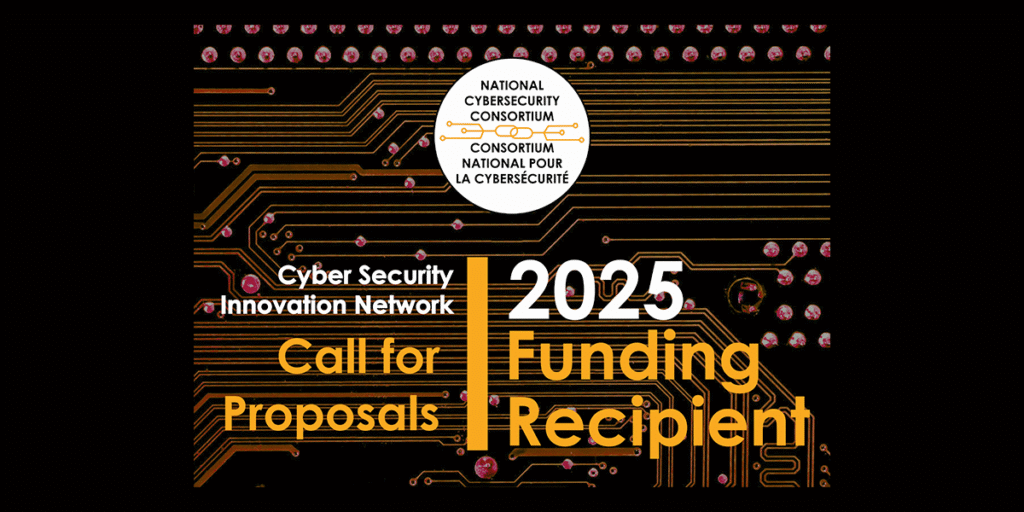
CANADA, OCTOBER 28, 2025 – The National Cybersecurity Consortium (NCC) has announced a slate of successful project applications as part of its second annual Call for Proposals. BCIT Smart Microgrid Applied Research Team (SMART) has been awarded 1.21 million for two projects. First, the Research and Development cybersecurity project, Digital Twin Platform for Critical Infrastructure Cybersecurity Modeling and Assessment in collaboration with academia, utility, and industry partners. Second, the Training cybersecurity project, Critical Infrastructure Cybersecurity Experiential Training Program in collaboration with BCIT schools, utility, and industry partners.
Digital Twin Platform for Critical Infrastructure Cybersecurity Modeling and Assessment

This innovative platform helps Canadian organizations strengthen their defenses, comply with cybersecurity standards and frameworks, and ensure that critical services remain cyber-resilient. By providing a powerful research and innovation tool, the project will contribute to the safety and security of Canada’s critical infrastructure systems.
Critical Infrastructure Cybersecurity Experiential Training Program
This project will address Canada’s urgent need for skilled workers in Operational Technology (OT) cybersecurity to protect its critical infrastructure and services from cyber vulnerabilities. By leveraging and expanding SMART’s innovative Virtualized Experiential Learning Platform (VELP), this project offers hands-on, practical training that fills a critical skills gap in industries such as energy infrastructures, utilities, telecom, and transportation.
This year, the NCC has dedicated $20.9 million in funding as part of its commitment to the Government of Canada’s Cyber Security Innovation Network program. In addition to BCIT’s successful project applications, funds have been distributed to 31 projects put forth by Canadian organizations representing academia, private institutions, and the not-for-profit sector. The NCC’s Call for Proposals program supports projects that include:
- research and development projects with Technology Readiness Levels (TRL)1-6 via the design and implementation of innovative cybersecurity technologies, advancing the “state-of-the-art”, and supporting studies into emerging cybersecurity issues;
- commercialization of new technology with TRL 7-9, developing products and services that address cybersecurity challenges in critical infrastructure protection, human-centric cybersecurity, network security, software security, and privacy protection; and
- provide and build opportunities for training, upskilling, and reskilling of cybersecurity professionals across myriad disciplines.
Visit the NCC website for a complete list of successful 2025 Call for Proposal projects, and to learn more about the NCC.
Quotes
“As Canada strengthens its digital infrastructure, BCIT continues to advance innovation that fuels economic resilience and workforce readiness,” says Dr. Jeff Zabudsky, BCIT President. “These cybersecurity projects exemplify our commitment to enriching industry partnerships and equipping learners with future-proof skills. Through SMART’s applied research and experiential training, BCIT is helping secure the systems that power our nation while preparing the talent that will shape our future.”
Cybersecurity requires innovation and talent,” says Jonathan Bassan, Interim Dean, Applied Research. “Through these applied research projects, BCIT SMART is developing tools that address real industry needs and equip students with the advanced skills needed to protect Canada’s critical infrastructure.
“These projects represent a vital step toward protecting Canada’s critical energy infrastructure,” says Dr. Moein Manbachi, Principal Investigator with BCIT’s Smart Microgrid Applied Research Team (SMART). “With our new Digital Twin Platform, we’re creating a safe sandbox where students, academia, utility, and industry partners can investigate cybersecurity impacts, practice compliance, and explore AI-driven solutions to strengthen resilience and operational security. Combined with our experiential training program, we’re equipping the next generation of professionals with the hands-on skills needed to safeguard the nation’s energy infrastructure.”
About the National Cybersecurity Consortium
The National Cybersecurity Consortium is a pan-Canadian network that supports the advancement of the Canadian cybersecurity ecosystem through research and development, commercialization, and training by driving collaboration among universities; private industry; not-for-profit organizations; provincial, territorial, and municipal governments; and other key cybersecurity stakeholders.
About SMART
The BCIT Smart Microgrid Applied Research Team (SMART) converges expertise in information technology, communications engineering, and energy management to develop advanced prototypes and solutions for complex applied research programs. At the forefront of its initiatives, SMART is advancing Digital Twin technologies for critical energy infrastructure, enabling real-time analysis, resilience testing, and intelligent decision-making. In parallel, the team leads R&D in OT cybersecurity, energy storage systems, and virtual power plant integration, addressing the evolving challenges of modern energy networks. Through strong collaborations with academia, industry, utilities, and government, SMART continues to strengthen BC’s innovation ecosystem and contribute to Canada’s energy transition.
Media Inquiries
Marieke deRoos, Info@ncc-cnc.ca
National Cybersecurity Consortium
BCIT Media contact: Amy Chen